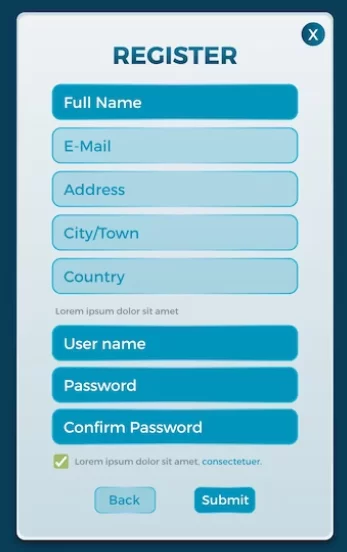Every aspiring entrepreneur has as their top priority to minimize initial costs. It is possible to reduce operational costs in an internet firm with the appropriate startup tools, even though an internet business must cover certain necessary costs. There are starting resources and technologies that can help clever business people save time while decreasing initial expenditures.
Indeed, the initial step is always the most difficult. Any startup must go through a critical ideation phase, but once you decide on the market you want to serve and the kind of product you will sell, things become much clearer. With the help of the following startup tools, you can move forward with more clarity.
Consider how valuable a few essential Startup tools may be in boosting productivity. How much more productive could you be if you had access to 30 of the best startup tools? Thankfully, I’ll be telling you just that today. Let’s get going!
Our Favorite Tool Tools Are Amazing
Fortunately, many great web applications are available that help you maximize your productivity and make starting a business faster, more effective, and more enjoyable. Finding the most excellent software can be challenging, just like choosing the ideal team members for your firm. There is an astounding variety of options available in the jungle that is the outside world. But don’t worry! To help entrepreneurs and startup teams operate more effectively, we’ve compiled a list of fantastic software for startups and separated it into categories like productivity software, analytics tools, and design platforms. Get ready to confront inefficiency. Thank you very much!
Entrepreneurs have several hats to wear. Your success as the founder of your startup depends entirely on you, from bookkeeping to personnel administration. Utilizing startup software and solutions designed to make managing a successful business more straightforward than ever is something we advise doing to ease the process a little.
Benefits of Creating a Startup
Startups benefit humanity and the global economy in a variety of ways. But below, we’ll go over the main advantages of starting a business:
Quick and flexible
Large firms typically adhere to traditional business models to please their clients, investors, and higher management. Startups, however, are not constrained by specific business methods because they are new ventures.
Startups are, therefore, quick to adopt new technologies and respond to changes in the business environment. On the other hand, established businesses require a lot of time to adapt their business model to recent global or technical changes.
Strong Interpersonal Bonding
Large corporations have informal workplaces where employees from one department may need to be more familiar with those from another. Even frequently, the CEO or other senior management must familiarize themselves with the staff. However, startups are renowned for having excellent team dynamics.
Small teams typically form the foundation of startups. They are all familiar with one another as a result. They effectively communicate, coordinate, and work together to solve a problem. The staff can be more productive and beat the turnaround time because of the workplace atmosphere.
Less red tape
Every choice or action in a well-established company requires official documentation. Before final approval, each procedure and decision are reviewed by individuals from several departments. This formalization makes it time-consuming to complete various tasks and makes decision-making ineffective.
Additionally, companies don’t adhere to a set of administrative guidelines. Because of this, their decision-making and implementation processes are agile. This feature boosts their productivity and gives them an advantage over big businesses.
Improved use of resources
Entrepreneurs can launch their enterprises with low resources, thanks to startup businesses. New companies with creative ideas might make greater use of various resources when they first start.
IT behemoths like Apple, HP, Amazon, and Google have also disclosed that their businesses started in garages. Steve Jobs’ childhood home garage was used for early operations, according to Steve Wozniak and Steve Jobs. Starting a business can teach entrepreneurs to take advantage of underutilized resources for their companies.
Brand Personality & Competitive Pricing
Compared to large organizations, startups have more interesting brand personalities. Even though they are paid less in startups, employees have more freedom and recognition, which significantly contributes to developing a brand’s personality. Because they are new and tend to be underdogs, startups naturally draw many customers.
Startups can provide more affordable prices without making significant staff and infrastructure investments. These creative enterprises operate with a small team and scant resources, and because of this, they can provide more flexible pricing than the major corporations.
Wealth and Job Creation
Considering how startups have affected the local or global economy is positive. Indeed, new jobs are created by startups. According to Statista research, these startup companies alone started almost 3 million employees in the United States.
Startups are bringing down the unemployment rate of nations by generating new jobs across various industries, and their economic growth will benefit from this. With increased income, these companies are opening up new markets and paying taxes to the government fairly.
Best Tools for Startups
Starting your own business takes time and effort. If you’re like most business owners, having access to free or inexpensive startup tools to help you launch, run, and expand your enterprise will be like music to your ears. The finest startup tools benefit practically every business element, from choosing a name to conducting market research.
The advantages of startup tools
- Budget-Friendly: Using inexpensive startup tools will help you save money you could have spent on hiring a specialist.
- Boost Productivity: Task completion and communication are emphasized in startup software and tools. This results in more significant goals being achieved and easier project management.
- Time management is one of the crucial components of running a startup, and these tools can help you save time and effort while keeping your business well-run and organized.
Choose the Right Tools to Fuel Your Startup
It’s easy to be distracted by shiny object syndrome with all the new tools that come out every day. But the most important thing to consider with any startup tool is how it can improve your company. Don’t feel obligated to buy if it doesn’t add value by saving you time, providing data, or anything else helpful.
Brainstorming Tools
Successful businesses start with good ideas, which requires creativity, but you can only think of a good idea partially. Besides talking with family, friends, and colleagues, these startup tools can also help with creativity.

Using the TRUiC Company Ideas Generator makes selecting a business concept simple if you have an entrepreneurial spirit and a general interest in starting a business. Users can use this free tool to turn their passions into marketable startup concepts.
Pricing: Free
The next stage is picking a business name if you already have a solid business idea. Choosing the perfect name for your firm can be challenging and time-consuming. Depending on the sector and other details with the TRUiC Business Name Generator, you may get original characters for your startup. Best of all, it’s free!
Pricing: Free
The entire suite of Google products, including Gmail, Calendar, Meet, Chat, Drive, Docs, Sheets, Slides, Forms, and Sites, is known as Google G Suite Workspace. Consequently, your startup needs all the Google office features, including a unique corporate email account. Having all of the necessary business tools in one location maximizes efficiency for groups that could use some assistance in brainstorming and collaborating.
Pricing: $6/user/month – $18/user/month
With Coggle’s brainstorming platform, you can efficiently work individually or as a team to create notes and generate mind maps. Coggle is free to start using, and if you decide it’s not for you, you have access to an infinite number of diagrams you can use even after you cancel your subscription.
Pricing: Free – $8/month
Startup Planning Tools
A business plan outlines your company’s next steps, and it’s the path from a concept to a flourishing business. Here are some navigational aids to aid in creating your future direction and plan.

The business plan for your startup serves as a road map for the actions required to meet significant company milestones and is, therefore, crucial. Fortunately, you can quickly and cost-free create a business plan to detail the first three to five years of your company’s life cycle using the TRUiC Business Plan Generator.
Pricing: Free
With LivePlan, you can construct a business pitch, create a budget and company projection, and compare your numbers to those of your competitors on one platform. Additionally, you can link the app with other business tools like Quickbooks or Xero to conveniently manage your startup’s finances and keep an eye on budgets from the LivePlan dashboard.
Pricing: $15/month – $20/month
The leading provider of lean startup tools is Leanstack. Leanstack gives startup business owners the tools to create a plan for a sustainable business model that is ready for quick expansion, from the business planning through mentorship.
Pricing: Free – $120/month
Website Builder Tools
Every company needs a website today, but building one doesn’t require coding knowledge. Guide guides make finding and registering a domain simple, and plug-and-build interfaces help you create a site specifically for your company.

GoDaddy is a one-stop shop for all of your website construction requirements. In addition to hosting websites, the platform allows you to create original, mobile-friendly websites with marketing tools and control reviews and social media. GoDaddy has some excellent choices if you want to keep your startup’s internet platforms organized in one location.
Pricing: Free – $24.99/month
Nestify provides simple and affordable website creation. With one of the inexpensive monthly hosting plans, which are priced to fit even tiny startups’ budgets, one-year domain registration is free. Although the builder is self-explanatory, there is always customer support available.
Pricing: $2.99–$15/month
You are guided through the website creation process by Web.com. The interface is simple, and all new clients get one hour of free customer support. Basic payment processing and search engine optimization are included in higher-end options, so you won’t need to pay extra.
Pricing: $10–$20/month or $50–$100/year
Squarespace is known for its award-winning, user-friendly design. With a two-week free trial, users can create their websites for nothing and later upgrade them to incorporate premium marketing capabilities. Whether you’re selling and marketing products or making appointments, Squarespace works for various startup kinds because you can pick and choose the features that your website needs while excluding the rest.
Pricing: $12/month – $40/month
Communication Startup Tools
For teams to be productive and effective, communication must continue. Utilize technology and these communication tools so that the team at your company may continually exchange concepts, information, problems, and solutions.

Business owners know that effective communication is essential to running a successful enterprise. Slack makes team communication quick, simple, and intuitive. Users utilize instant messaging to talk with specific team members, public channels, and structured private groups instead of email. As your startup expands, you can add an infinite number of members to maintain excellent communication.
Pricing: Free – $12.50/user/month
With big-business capabilities and a small-business price tag, Ooma provides business phone support. The service includes a virtual receptionist, extension dialing, phone conferencing, holding music, and in-field calls for mobile workers after it is set up. The setup is DIY to keep prices down, but with a tutorial, you can set up your company’s phones in a matter of minutes.
Pricing: $14.95–$24.95/user/month
You can control costs by just paying for the business phone services that each employee indeed requires, thanks to Phone.com. Phone.com allows you to individually sign up each user for the Basic, Plus, or Pro Plan, unlike other phone services that sign up every employee at the same plan level. Call recording, voicemail transcription, call analytics, and CRM connection are features you’ll desire. Part-time workers require the Basic’s 500 monthly minutes.
Pricing: $11.99–$23.99/user/month
RingCentral’s practical communication tools connect customers and employees alike. Even the most basic plan offers toll-free phone numbers and up to 20 users, which is sufficient for many small enterprises. The more expensive options include:
- 200-person video meetings.
- Enhanced call handling.
- Real-time analytics.
- Device status updates.
- Integrations with industry-specific tools like Salesforce and Zendesk.
This is a genuinely comprehensive phone solution for companies that need substantial call statistics.
Pricing: $14.99–$37.49/user/month
Startup Incorporation Tools
Incorporating your firm with a professional service is simple, offering significant legal advantages. These resources will get you legally registered, from choosing a registered agent to filing Articles of Organization.

Not only does Northwest Registered Agent assist you in submitting your business’s articles of incorporation. After filing, the company still helps you by acting as your registered agent. Your company will have privacy if you use them as a registered agent, and Northwest guarantees that it will never sell your information. Naturally, the service forwards all paper and electronic letters correctly.
Pricing: $29 business formation; $125/year registered agent service
Tailor Brands platform supports the creation of businesses, branding, and websites. Its goal is to enable business owners to quickly establish their enterprises by acting as a one-stop shop. Tailor Brands generally provides the best premium package for founders who need both tools for forming an LLC and building their brand and online presence.
Pricing: $35–$199/year
Startup Funding & Financial Tools
Need financial support from sources other than your immediate relatives and friends? With the help of these fundraising and financing options, you can secure the funds you need to expand your company’s revenue.

A program called Foundersuite gives business owners many options for locating, managing and obtaining finance for their startups. Their CRM application has an Investor Updater tool that offers monthly reports and helps users to create investor funnels and a venture capital database.
Pricing: Free – $150/month
Gust provides resources and funding possibilities to launch, develop, and fund enterprises. The platform’s primary goal is to help create a successful, sustainable startup model. Gust offers you funding sources customized for you once you’re ready to launch your firm, providing you the highest chance of procuring the required dollars.
Pricing: $300/year – $3,000/year
Outsourcing Startup Tools
You may get top personnel while keeping expenses down through outsourcing. With the help of these platforms, you may connect with a vast pool of individuals that provide everything from low-cost services to highly specialized knowledge.

With projects starting at $5 per work, Fiverr is a freelancing service marketplace that makes hiring contractors more accessible. You may locate independent contractors on Fiverr. You may hire with confidence from Fiverr’s app, whether you’re looking for drop shippers or web developers, because of their demonstrated business success and customer success management.
Pricing: Starts at $5/job
Are you considering recruiting independent contractors for your startup? Finding freelancers in virtually any industry, from web design to copywriting, is incredibly easy, thanks to Upwork. By investigating your short-term hires’ skill level, history, and client testimonials using their rating and reference system, you may feel secure in your choice.
Pricing: Free – $849/month
With a workforce of over 8 million people, AngelList has a sizable network with a strong tech focus. Businesses have utilized the platform with impressive growth tales like DoorDash, Roblox, and Peloton. You can use it to get the support you need to succeed after starting.
Pricing: Free–$250+/month
Startup Networking Tools
Nowadays, networking takes place digitally, using tools like social media platforms. To see and be seen in the digital world, make sure you are visible on the platforms below.

LinkedIn is a networking software and website business professionals use to develop communities that can promote a startup’s success. Not only does LinkedIn assist in connecting you with fellow businesses, but can also be utilized to identify, vet, and engage with possible new hires.
Pricing: Free or LinkedIn Premium Business: $59.99/month
Shapr extends the idea of a networking app by adding many business communication tools. Entrepreneurs may connect with other business owners, look for new workers, raise money, and locate mentors who can make a difference on Shapr’s user-friendly platform. Shapr was developed with startups in mind and is focused on assisting new business owners in building robust business networks.
Pricing: Free – $99.99
A networking software called CoFoundersLab links entrepreneurs to co-found firms based on their compatibility. The website offers business resources, mentorship programs, and a community of about 400,000 members to network.
Pricing: Free – $19.99/month
Entrepreneurs are faced with a never-ending stream of decisions and questions. Clarity gives you access to top-notch professionals when you need a little assistance. Conduct a database search and place a phone request. You’ll speak with an expert who has been in your situation immediately.
Pricing: Per minute based on the expert’s rate
Accounting & Payroll Software
You must have a firm understanding of your company’s finances if you are a business owner. If you hire a pro, they’ll use some of these payroll, accounting, and bookkeeping tools. Use these programs as well as your financial management.

Payroll, hiring, time management, and HR services are all made simple with the help of ADP, a business management app. However, if you are still determining whether you’ll require all of ADP’s services, you can pick the ones you need and disregard the rest to avoid paying for any assistance you won’t utilize.
Pricing: Varies depending on business needs
Any business’s financial stability depends on practical accounting. To track sales and expenses, analyze profit and loss reports, pay personnel, and review financial statements, QuickBooks offers accounting software. All these capabilities are simple to access with Quickbooks’ user-friendly dashboard, making accounting and bookkeeping for your firm simpler than ever.
Pricing: $7.50/month – $75/month
Your company’s books are more accurate thanks to Freshbooks. Invoicing, expense tracking, time tracking, project tracking, payment processing, report generation, and other functions are all possible with the software—tools for double entering help to lower errors.
Pricing: $4.50–$15+/month
With online payments, recurring payments, in-app payments, invoicing, and personalized receipts, OnPay offers a complete payment processing solution. You receive a robust desktop app, PCI compliance, in-depth reports, and more on the back end.
Pricing: Custom
With Zoho, you don’t have to look further for your company’s software because it covers customer relationship management, marketing, communication, and information technology. It can also handle the monetary needs of a firm. You can save money and time by combining accounting functions such as invoicing, bookkeeping, reimbursing employees for business expenses, processing payments, and tracking inventory.
Pricing: $249+/month
Reduce your accounting budget without sacrificing quality. To reduce accounting fees, 1-800Accountant takes advantage of online commerce. An individual certified public accountant (CPA) will still be assigned to handle the tax matters of your limited liability company (LLC) and is available for consultation at any time. In other words, your accountant can be paid less.
Pricing: Free–$375/month
Design Startup Tools
Customers’ first impression of your company will be based on how professional and engaging your company seems online. Grab people’s attention with the eye-catching graphics you made using these tools.

A well-designed logo is essential to the startup’s branding because it will be used everywhere, from business cards to signage. The TRUiC Logo Maker is a simple generator that can help you create a logo for your company by asking a few questions about your business.
Pricing: Free
Tailor Brands Logo Maker allows you to design professional-looking logos in minutes, regardless of your experience with graphic design. You can create a professional-looking document in no time by entering some standard business information and choosing certain formatting options. The logo maker will spit out numerous options based on pre-made templates; you can then modify them to suit your needs.
Pricing: Free – $12.99 per month
Regarding creative assets, stock photographs are only the tip of the iceberg for Envato, which stores over 60 million in its database. Templates for graphics, films, presentations; pictures; 3D models; videos; and royalty-free music are all available.
Pricing: $10.50–$16.50/user/month
Balsamiq is a program that mimics the notepad and displays it on your computer or mobile device. Draw on paper or a whiteboard like you usually would, and the program will assist you in transforming your ideas into working websites, apps, and more. You can go from brainstorming to a functional wireframe in five easy steps. From there, you can move on to making the content itself.
Pricing: $9–$199/month
Adobe Creative Cloud is a streamlined platform that can be used to design, create, and manage all of your startup’s initiatives. The Adobe Creative Cloud offers a centralized location for startups to save, access, and collaborate on their creative work across multiple devices and platforms using Adobe stock photos, Typekit, Behance, and many more tools.
Pricing: For businesses, $33.99/month – $79.99/month
Startup Marketing Tools
Advertising a new company’s existence in the marketplace on a shoestring budget is a must. That’s precisely what your new or expanding firm may benefit from these promotional tools doing.

TRUiC’s mission is to furnish your small business with the most secure, most trustworthy resources. One of the least time-consuming ways to boost your company’s productivity is using our free QR code generator. Quick response codes, or QR codes, are a special kind of barcode designed to be scanned and read by mobile devices. Virtually any piece of data, from text and numbers to phone numbers and web addresses, can be encoded into a QR code. This adaptability makes them useful for business owners and advertising campaigns of all sizes.
Pricing: Free
HubSpot’s marketing system is organized as a hub with several spokes. Customer relationship management (CRM), sales, marketing, and customer service hubs are all separate apps that can function alone. Still, their actual value lies in the information they share. If you’re a new business, HubSpot is a must-have.
Pricing: Free–$5,000/month
Product Hunt compiles offerings from 32 businesses that provide tools and resources for new companies. Most of these businesses are software, app, or digital service developers. However, the site guarantees $100,000 in discounts and credits, and there are undoubtedly some programs that you will utilize. Even if these aren’t gratis, they’re still an excellent value for the $60 monthly cost.
Pricing: $60/month
If you’re a business owner who needs more time to learn everything about email marketing, AWeber is one of the best tools you may use. Use the software’s premade email, landing page, and signup form templates to create individual emails and entire campaigns in no time. Emails can be automated, and external apps can be integrated as needed.
Pricing: Free–$148.75
Drip automates email for ecommerce, using plenty of data to do so. Quickly construct email marketing campaigns with the drag-and-drop builder, and use as many stats as you want. Reports are built so you can immediately gather the most critical data, or you may go into specifics to construct fully optimized ecommerce email campaigns.
Pricing: $39–$1,500+
Send emails, establish a website, and set up an online store with one solution. GetResponse is mainly used for email marketing; however, it can also be used to construct the above elements. Starting with email marketing, you can add other features as needed.
Pricing: Free–$699/month
When it comes to sending emails, nothing compares to MailChimp. In addition to its intuitive drag-and-drop interface, the email marketing software stands out with its attractive templates, comprehensive analytics, and clever segmentation. Get your first email marketing campaign up and running, and then utilize the information you get to make informed decisions about how to tweak subsequent efforts. Basic metrics are available as well, such as open and click through rates, as well as automation.
Pricing: Free–$1,300+/month
Make your stories public knowledge by having them printed in newspapers. Although eReleases will not publish your story, it will send press releases to over 1.7 million US-based journalists. A well-known publication may pick up the story if the press release is genuinely groundbreaking. Still, the press release will be released in various obscure places where search engines will take note, even if no large national publication prints it.
Pricing: $299–$599
One of the most popular services on the web, Google Analytics, gives statistics on websites. Because of its dominant market position, Google is in a prime place to collect massive amounts of website usage data, which it can then use in conjunction with its other products (e.g., Google Adwords, Google Search Console). Online analytics systems for small businesses provide less data in as easily digestible a style, and even fewer provide functional free versions.
Pricing: Free–$12,500/month
With Hootsuite, you can take advantage of social media’s many benefits without the hassle of continually checking in. Get the most of social media marketing efforts by using this program to generate and schedule posts, arrange for paid adverts and sponsored content, and compile a branded content database. Hootsuite is used by over 80% of the Fortune 1000 and is also popular among many smaller enterprises.
Pricing: $49–$739+/month
Project Management Software
Teams are more likely to achieve their objectives when members are kept informed and held responsible for their contributions. The use of these project management tools simplifies the process significantly.

Software that emphasizes communication and organization can significantly improve the ease with which you manage your startup’s initiatives. Monday, the project management app, has everything. Using this app’s convenient platform, you can create projects, add tasks, specify steps, and teach team members, all while tracking the project’s progress.
Pricing: Varies depending on business needs
Wrike’s stated goal is to cut email communication by 90%, which is a noble goal that deserves support from everyone. The project management tool may achieve this thanks to its user-friendly interface and comprehensive scheduling tools, and Timelines and progress may be monitored and easily communicated via the dashboard.
Pricing: Free–$24.80+/user/month
Smartsheet is an excel add-on that helps project managers organize their work more efficiently. Keeping everyone in the loop about corporate resources, project status, staff tasks, and more is a breeze with a dashboard/spreadsheet hybrid that does it all.
Pricing: $7–$25/user/month
ClickUp provides charts and visualizations project managers can use to keep tabs. Work with mind maps, checklists, priority lists, task templates, and more to monitor the progress of your projects and employees. Information can be presented in various ways with this project management software.
Pricing: Free–$19/user/month
Trello is a project management and organizing tool with features like in-app due dates, calendar commands, and more. Moreover, you can integrate Trello with other helpful tools like Dropbox and Google Docs to simplify your project management.
Pricing: Free – Varied pricing depending on business needs
The primary focus of Asana is on increasing efficiency. The app simplifies project administration, facilitating increased productivity for new businesses. Asana allows teams to collaborate on projects, share data, set deadlines, and plan their next moves.
Pricing: Free – $24.99/user/month
CRM Software
Customer relationship management software allows for more informed interactions with customers. Make the most of your time spent communicating by phone, email, and in-person by analyzing aggregate and detailed data. This is the only program that so seamlessly integrates online and offline commerce.

There are several advantages to using Salesforce as your customer relationship management platform because it is the most popular option. Salesforce integrates with a wide variety of other programs and offers its own advanced tracking, reporting, productivity, and forecasting functions. Anyone in sales and marketing may use the software to increase productivity, humanize customer contacts, and boost revenue.
Pricing: $25–$1,250+
The Freshsales CRM from Freshworks aims to bring your sales team together. It’s a great customer relationship management system for young businesses trying to structure their sales communication. Freddy, an AI tool, eliminates the learning curve of navigating a customer relationship management system, freeing up your sales team to focus on what they do best: building relationships.
Pricing: Free – $69 per user per month
Online Banking Startup Tools
The banking services provided by online banks are both extensive and easily accessible. A company checking account is a bare minimum, but savings, credit lines, and other forms of financing are also desirable. When it comes to the conditions of these products, online banks typically offer some of the most competitive options.

Lili can handle financial needs and more. Open a bank account and manage your finances and tax records in one convenient place. The two are highly complementary, as accounting and tax savings require access to your bank account details.
Pricing: Free–$4.99/month
There is no fee associated with Relay’s basic business checking account. If you need a checking account that you and your employees can use, you can skip the extra features that charge extra, including online bill pay and automatic QuickBooks Online updates.
Pricing: Free–$30/month
Business Credit Tools
Using a business credit card to pay bills and other expenses is convenient, and if you rack up many charges, you may even receive rewards. Below are a few of the best places to get a business loan.

Brex is a unified platform for making and managing purchases, payments, and credit card spending. If you open an account with Brex, you won’t ever have to open another business rechecking account or credit card.
Pricing: Free to open an account
Businesses requiring additional funding can turn to Divvy for flexible underwriting options. There’s bound to be a financing option that works for your company, with flexible lines of credit, various underwriting options, and quick approval.
Pricing: Varies depending on businesses’ situations and needs
Business Insurance Tools
Almost every company may suffer harm to their property or be sued, which is why business insurance is so important.

Tivly provides access to commercial insurance coverage from a wide range of providers. There are multiple policies here that should work for your company regardless of its size, industry, or desired coverages. The insurance is straightforward to evaluate side by side to determine the best option.
Pricing: Varies depending on businesses’ situations and needs
At Next Insurance, we specialize in coverage for small businesses, so you won’t have to go through a bunch of options before discovering the right one for you. Think about what sort of protection you’ll need, and then compare several quotes for small business insurance.
Pricing: Varies depending on businesses’ situations and needs
Startup Productivity Tools
Everyone is already stretched thin, trying to get a new business. Use these time-saving resources to the fullest, both personally and professionally.

Do you use a carefully constructed list of tasks to keep your team’s projects on track? If that’s the case, OmniFocus might be your perfect productivity app. OmniFocus’s emphasis on time management and organization makes it ideal for helping companies, and their teams stay on top of critical work and meet deadlines.
Pricing: Starts at $49.99
The internet is a fantastic resource, but it provides easy access to several time-wasters like social media and the news that may be disruptive to the workplace. RescueTime is a time management program that provides in-depth reports on a user’s screen time, including which sites and apps were used and how much time was spent on each. These results justify instituting time limitations within apps and websites or restricting access to them entirely to help you stay on track.
Pricing: $78/year or $12/month
Another tool best suited for avid to-do list creators, Todoist, provides just that. Create to-do lists to manage projects and chores to maintain steady productivity and organization. You can add tasks to the calendar, delegate chores, discuss and manage projects, and more on Todoist’s easy-to-use interface.
Pricing: Free – $5/user/month
To Conclude,
There’s something on this list for everyone, whether they’re looking for a quick and simple way to incorporate their business, a way to track their progress, or a way to grow to hack the press coverage their startup receives.
Finding the right tools for your startup can simplify your work, save time, and reduce expenses. A great agency will have these qualities: easy to learn and use, inexpensive, and low maintenance.
When you integrate them into your workflow, they get out of the way so you can focus on finding a solution to a problem. You can easily connect them and make them communicate with one another using the numerous integration methods most of them provide. Making sure you’re providing a fantastic customer experience is a breeze thanks to the seamless data transfer between tools.
FAQs
Which essential tools are required for a business startup?
You must have a few important items when beginning a business if you want to succeed. It would help if you had a firm grasp of your company’s aims and objectives. What do you want your company to accomplish? What are your short- and long-term objectives? You must develop a thorough business plan after being sure of your objectives. Your marketing plan, target market, financial forecasts, and other pertinent details about your company should all be included in this paper.
Additionally, you will require financing for your business operation. This could entail obtaining loans, selling equity, or locating additional funding sources. Finally, you must assemble a talented group of workers, subcontractors, and consultants who can assist you in carrying out your company plan and achieving your objectives. Position your company for success by putting together the right team and having the right resources available.
How can the startup process be sped up?
First, speeding up a procedure should maintain the quality of your work. We need to strike a balance between speed and efficiency.
- A clear plan for product development that you adhere to
- An excellent approach to try is agile methods
- Test your development regularly using productivity tools
- It is imperative to keep records
- Coding should be removed
These will enable you to advance your development more quickly. The technology your development partner chooses is another item you should keep in mind. Time and money can be 10X saved with the appropriate software.
Is startup product development speed important?
Your startup product development speed can make all the difference in this cutthroat market. You can be caught off guard by the increased competition for your goods in the rapidly evolving business conditions.
You will lose millions of dollars if a product poised to upend the market is released too late. You would require teams that offer consumer-focused digital solutions.
- How can startup efficiency be improved?
Effective techniques to increase product development efficiency include:
- a good process
- eliminate any backlogs
- Make an effort to finish the task as accurately as you can. (bad code structures will quickly turn into a game of Jenga)
- Control your ongoing projects so that your team can identify the end goal and make your progress apparent.
How should a remote startup team be managed?
For some, leading a remote team is a taxing task. Here are a couple of approaches to do that:
- Make it plain to others what you want, how you want it, and why
- Instead of seeing them as a separate entity, could you include them in your team?
- Demonstrate your sense of enterprise
- Don’t micromanage them and impede their efficient operation using communication and productivity tools
- Have scrum meetings using tools to maximize your time
- Access information and places of interest



